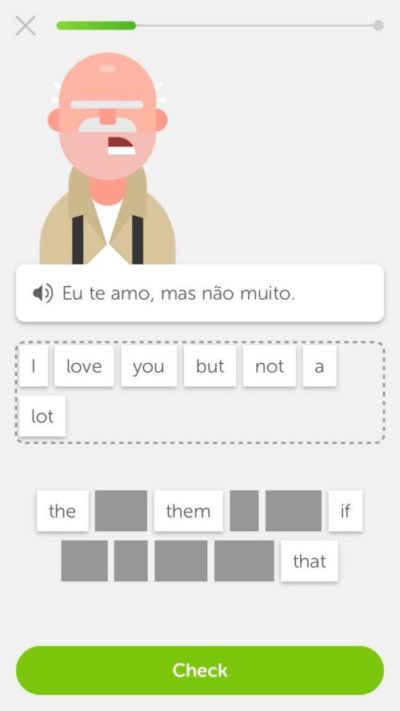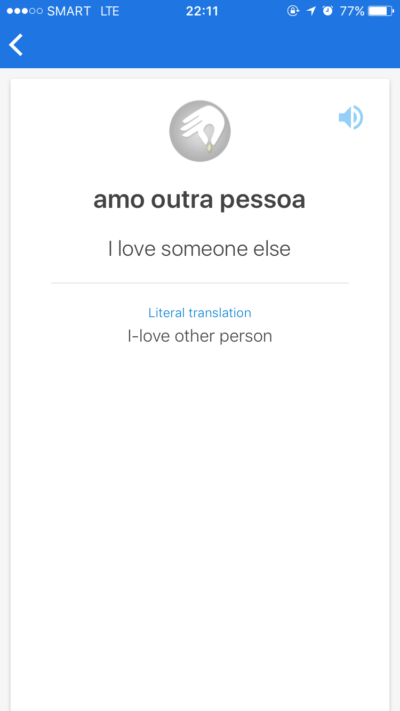Want to Learn a New Language? Use These Apps
It's a great new habit to pick up for the new year.
by Meg Santibanez | January 13, 2017

There are a myriad of language learning apps to choose from and it’s very important that you pick the right one depending on your goals and your learning style. You may want to learn standard phrases for tourists (like “where’s the bathroom?”) or actually immerse and try to be conversational — even fluent — in your choice of foreign language. As for learning styles, a lot of the process has to do with memory and logical thinking, and each app has a different approach.
Are you ready to get the lowdown? Here are our favorites.
Duolingo (Free)
What it is: Duolingo is probably the most popular language app in the market, and it’s actually hard not to love it. The app’s gamification approach can get quite addictive. Plus, you can connect with friends and compare your progress (warning: it can get quite competitive). The pacing is really good, too — so good that you feel a kick of fulfillment every time you complete a section.
How it works: You set a daily goal ranging from five to 30 minutes of lessons, and you get reminders to complete your goal. There’s a variety of challenge types, and the words, phrases and sentences you’re learning will be read to you on command. The modules are progressive. You can’t skip lessons unless you pass a summary test, or a checkpoint, that covers the gist of the lessons you want to skip.
Duolingo is for the more engaged aspiring polyglot and not the casual phrasebook hacker. The modules progress like an actual face-to-face language class, and it would take some time for you to level up enough to be conversational.

It also has a sense of humor.
What we love about it: Every time you get a wrong answer, an option to check discussions pops up. Here you can see what the community, which is made up of a lot of native and advance-level speakers, so you learn extra about how things are said in formal and colloquial settings.
The downside? The community discussion feature is currently only available to Android users.
Memrise (Free & Paid)
What it is: Like Duolingo, Memrise is a gamified language app that features a pretty UX that makes it so much more interesting and fun to use. So fun that it doesn’t need to feel competitive to be motivating.
How it works: You also set a daily goal, you choose between five, 15 or 30 minutes and then you proceed with the modules. The challenges are also modular, but with this app, you can proceed as you please and skip to higher levels. There’s also a variety of challenge types, and for every correct answer you get for the word or phrase in your module, you grow a plant from seed to flower. Getting a flower means you’ve grown a memory. Cute, right?
What we love about it: We love a lot of things about Memrise. For starters, you can watch native speakers (i.e. real people!) say the word or phrase that you’re learning (although you have to subscribe to the pro version to unlock the full module of this feature). Before each lesson, the app flashes the topic word or phrase, the translation and the literal translation. So you get to follow and understand the logical progression of conjugation better.

Downside: hurtful topics
Memrise also has lessons over 80 languages — think Korean, Brazilian and European Portuguese, and even Ancient Greek. The only downside we’ve seen so far is that they seem to remind you about the payment plans for the full version a little too regularly.
Busuu (Free & Paid)
What it is: Busuu, by way of how it’s built and designed, is kind of like a combination of Duolingo and Memrise.
How it works: Each language course is made up of 150 topics across a variety of challenges that range from quick quizzes, memory games, writing exercises and a part where you fill in the blanks of a dialogue.

Like Duolingo, the lessons are grouped according to use or context (“Everyday Tasks” “At Work,” At Home,” Expressing Yourself,” and “Feeling and Emotions”). It’s modular, but like Memrise, it lets you jump around levels and lessons. Which makes it very convenient for those who want to just learn specific phrases fast.
What we love about it: Although they have a short list of available languages and the UX isn’t as pretty an eye candy as the first two apps, Busuu has two things the other two don’t: 1) it has an offline mode so you can keep doing your lessons even when on the plane or just about anywhere. And 2) it has a community of native speakers that actually reviews (not just comments on) writing exercises submitted at the end of each lesson. It’s an interactive, collaborative way of learning the language — it’s going to be almost like you’re there where the language is spoken (unless, you know, you actually are).
Got recommendations? Post them in the comments!









